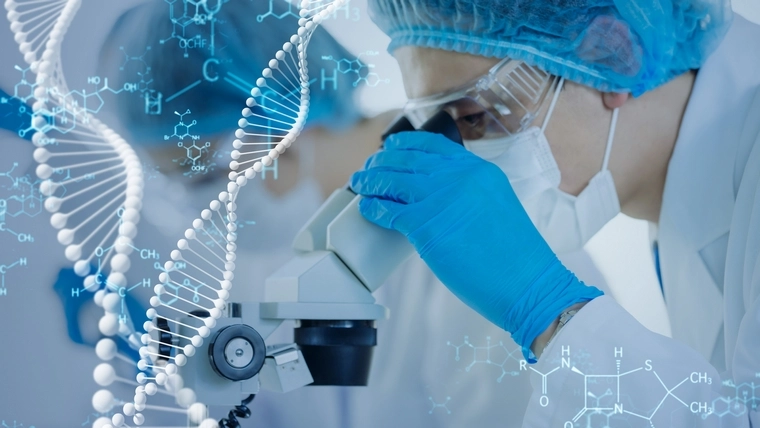
What is the Genetic Diseases and Diagnostic Center?
The Genetic Diseases and Diagnosis Center is a medical unit specifically designed for the diagnosis, treatment and follow-up of genetic disorders. These centers work with teams of doctors, genetic counselors and laboratory technicians who specialize in the detection and management of hereditary diseases. Patients' genetic predispositions, family history and genetic risk factors are evaluated, thus creating personalized diagnosis and treatment plans.
About Genetic Diseases and Diagnostic Center
Genetic Diseases and Diagnostic Centers are equipped with state-of-the-art diagnostic tools and expert staff to inform and treat patients about hereditary diseases. Studies conducted at the center provide detailed information about the genetic structures of patients, thus preventing diseases, early diagnosis and effective treatment processes are planned. Genetic counseling service provides information to family members about possible genetic risks and provides lifestyle recommendations in line with genetic test results.
What is done at the Genetic Diseases and Diagnostic Center?
The Genetic Diseases and Diagnostic Center conducts comprehensive studies such as detailed examination of patients' genetic structures, detection of genetic disorders and determination of possible risks. The center diagnoses diseases through genetic tests, provides genetic counseling services and monitors patients during the treatment process. At the same time, genetic risk assessments of family members are conducted and necessary precautions are taken in line with this assessment.
What are the procedures and tests performed at the Genetic Diseases and Diagnostic Center?
The procedures and tests performed at the Genetic Diseases and Diagnostic Center play a vital role in the diagnosis of various genetic diseases, determining risks and creating treatment plans.
The main procedures and examinations performed at the center are as follows:- Diagnostic Tests: Tests performed to confirm the presence of genetic changes (mutations) in individuals who are showing symptoms of a particular disease. For example, they are used to confirm the diagnosis of genetic disorders such as cystic fibrosis or Huntington's disease.
- Presymptomatic and Predictive Tests: These are tests performed to determine the risk of developing a genetic disease in individuals with a family history of that disease before symptoms appear. These tests can be used to determine the risk of some types of colon cancer, for example.
- Carrier Testing: Tests performed before having children on individuals with a family history of a genetic disorder (for example, sickle cell disease or cystic fibrosis) or individuals with a predisposition to such diseases in a certain ethnic group. Expanded carrier screening tests identify genes associated with various genetic diseases and mutations and determine whether couples are carriers for the same disease.
- Pharmacogenetic Testing: Genetic tests are performed to determine the most effective and beneficial medication and dosage for individuals with a specific health condition or disease. These tests help create personalized treatment plans.
- Prenatal Tests: These are tests performed during pregnancy to detect certain abnormalities in the baby's genes. Genetic disorders such as Down syndrome and trisomy 18 syndrome are usually screened with these tests. Traditionally, these tests were performed using blood samples or invasive methods such as amniocentesis, while a newer method called cell-free DNA testing allows the baby's DNA to be examined using samples taken from the mother's blood.
- Newborn Screening Tests: Mandatory in all states in the United States, these tests allow newborn babies to be tested for certain genetic and metabolic disorders. These tests can help detect disorders such as congenital hypothyroidism, sickle cell disease, or phenylketonuria (PKU) early, allowing rapid treatment.
- Preimplantation Tests: This is the process of screening embryos for genetic abnormalities in individuals planning to have children through in vitro fertilization. Embryos that do not contain any abnormalities are placed in the uterus to increase the chance of pregnancy.
These tests are of great importance in terms of early diagnosis of genetic diseases, determination of health risks of individuals and creation of appropriate treatment plans. These procedures performed in the Genetic Diseases and Diagnostic Center are meticulously applied to increase the quality of life of patients and minimize the effects of genetic disorders.
What are the diseases treated at the Genetic Diseases and Diagnostic Center?
The Genetic Diseases and Diagnosis Center diagnoses and treats many hereditary and genetic diseases. These include cystic fibrosis, hemophilia, thalassemia, Duchenne muscular dystrophy, Huntington's disease, Marfan syndrome, Down syndrome and various metabolic diseases. At the center, early diagnosis of genetic diseases is critical to improving patients' quality of life and preventing disease progression.
What Tests Are Performed at the Genetic Diseases and Diagnostic Center?
In the Genetic Diseases and Diagnostic Center, various tests are applied to examine the genetic structures of patients and to detect possible genetic disorders. These tests play a vital role in the diagnosis of genetic diseases, determining risks and creating personalized treatment plans. Here are the main tests commonly applied in the Genetic Diseases and Diagnostic Center:
- DNA Sequencing: A method used to detect genetic mutations and variations by analyzing DNA sequences in specific regions of the genome. This test plays a critical role in the diagnosis of many genetic diseases.
- Karyotype Analysis: Allows the detection of genetic abnormalities by examining the number and structure of chromosomes in cells. It is used to detect disorders in chromosome number or structure, such as Down syndrome.
- FISH: A test that uses fluorescent markers to detect specific regions of DNA. This method is used to detect certain genetic changes and chromosome abnormalities.
- CGH: A test used to detect DNA copy number variations (CNV) in the genome. CGH is widely used to determine the genetic profiles of tumors, especially in cancer genetics studies.
- Preimplantation Genetic Diagnosis (PGD): The process of screening embryos for genetic abnormalities during IVF treatment. This test detects embryos at risk of genetic diseases and allows healthy embryos to be placed in the uterus.
- Cell-Free DNA Test: This is a test that allows the detection of genetic disorders by examining the baby's DNA circulating in the mother's blood during pregnancy. This method is used in the prenatal diagnosis of trisomy disorders such as Down syndrome.
- Next Generation Sequencing: It is an advanced technology that provides comprehensive genetic information for the diagnosis of genetic diseases by analyzing multiple genes simultaneously. This test is used to understand the genetic structure of complex diseases such as cancer.
- Carrier Screening Tests: These are tests performed to determine whether individuals carry genetic disorders. They are used to determine whether you are a carrier for genetic diseases such as sickle cell disease and cystic fibrosis.
These tests are of critical importance in the diagnosis and management of genetic diseases. These tests, which are applied at the Genetic Diseases and Diagnostic Center, are meticulously performed to determine patients' health risks and plan appropriate treatment approaches.

